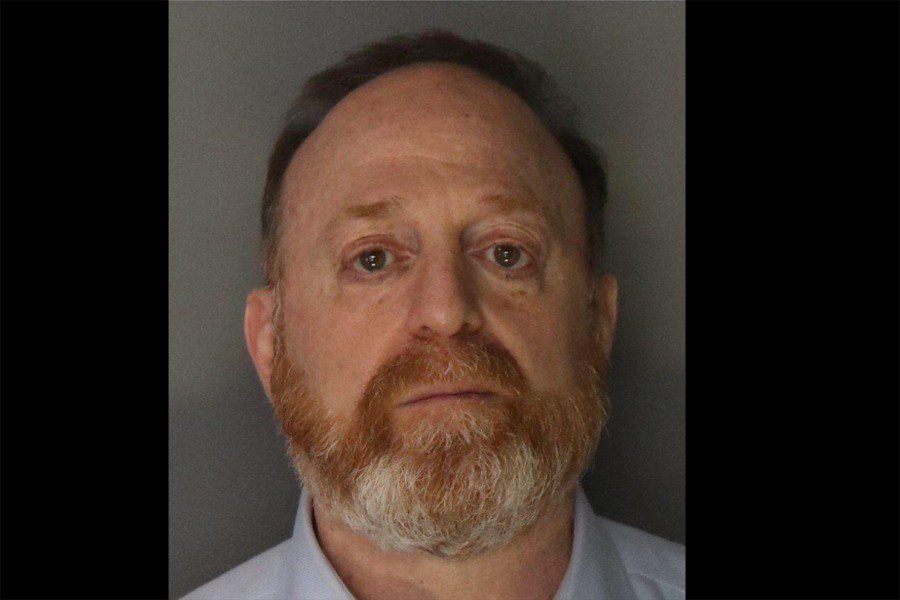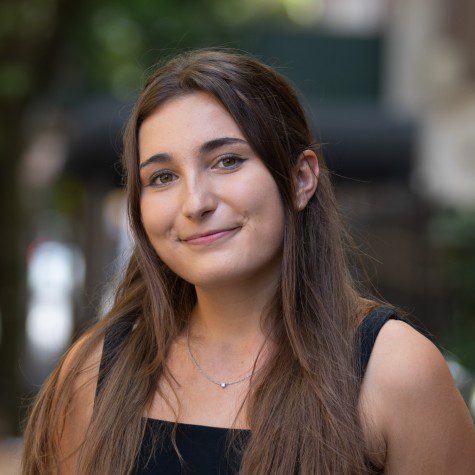Sex offender prof. under review, wants to keep NYU job
NYU adjunct professor Robert Ginsberg was suspended after the university discovered that he had been convicted of possessing and promoting child pornography in 2015. The adjunct union says it is prepared to represent him during review proceedings.
NYU suspended adjunct professor Robert Ginsberg last week. (Photo via New York State Division of Criminal Justice Services)
October 17, 2022
Robert Ginsberg, the NYU adjunct professor who was suspended last week after his two child pornography convictions from 2015 came to light, said he believes there is a “very reasonable possibility” that he keeps his teaching job.
After he was suspended, the university said that its legal and human resources departments will conduct a review of his employment. Speaking to WSN about the suspension, Ginsberg repeatedly asserted that he believed that there was no issue with his employment in a teaching role at the university.
“There are repercussions for this all coming out, and I don’t think it needed to come out,” he said of his conviction. “I was not a threat to the community that I was dealing with by teaching at NYU.”
Ginsberg is a member of NYU’s adjunct faculty union, ACT-UAW Local 7902, which negotiates with the university on behalf of adjuncts.
A representative for the union, Cate Fallon, said that though the union had not been made aware of the suspension, it is prepared to represent the professor during those proceedings. According to its current contract with the university, NYU is required to notify the union about written dismissals or suspensions of faculty members within two business days of the time they are issued. Fallon said the union was never notified of a letter of suspension, which Ginsberg said he received last week. NYU’s failure to notify the union of such a letter would be in violation of the contract.
Fallon added that now that the union has become aware of the suspension, it will contact Ginsberg on Monday. She added that in cases in which adjunct faculty are disciplined by the university, the union typically assists them during the process.
“In those cases, we as a union would participate by supporting the adjunct — attend meetings and do whatever we can,” Fallon said. “And because it is a suspension, if there’s nothing found in terms of his teaching, we would assume that he could continue as a faculty member.”
NYU spokesperson John Beckman said the university conducts background checks on “high-risk” roles which involve direct interaction with students, and that it plans to review those background check practices. According to Fallon, the union has not discussed whether it will support changes to those policies in response to Ginsberg’s suspension.
Fallon emphasized the union’s role in ensuring that the faculty it represents receive the due process they are entitled to. She did not directly respond to a question about whether she or the union believed that a professor’s presence on the sex offender registry should disqualify them from a teaching position at the university.
Ginsberg has been on the New York sex offender registry since his conviction in December 2015 as a Level 2 sex offender, meaning that courts determined he has a “moderate risk of repeat offense.” He pleaded guilty to two felonies and was sentenced to 10 years of probation in 2016. His lawyer told the New York Post that he completed his probation this March. According to his court decision, Ginsberg exhibited an “extremely troubling and longstanding history of obsessive behavior regarding child pornography.”
Ginsberg on his conviction and suspension
The suspended professor said the university first informed him that his employment status was under review over the phone. He said that he was instructed to not contact anyone in the university community while the matter was being investigated.
“That was the first I heard of anything,” Ginsberg said. “I was completely caught off guard by that.”
Ginsberg said he informed the New York state office that runs the sex offender registry that he was employed by NYU. However, he said that he was not required to tell the university about his conviction — and chose not to.
According to the professor, his real estate license was suspended when the New York Board of Real Estate found out about his conviction, but was reinstated after it conducted a review. He said he has since been practicing in the state for about six years. He said he thought the university may make a similar decision.
When he was first convicted, Ginsberg said he planned to resign from his position at NYU. However, he said that his therapist advised him to continue teaching. He was fearful that continuing to teach would be “problematic,” and that the university would eventually discover his conviction.
“I just wanted to avoid the issues that would bring up,” Ginsberg said of his initial instinct to quit. “I just figured that it was a lost cause. But I was informed that many people in my circumstance continue to work.”
Ginsberg said he believes the university’s decision to conduct a review is “fair” and did not have any information about where the process stands now.
“What I did was something I did, it’s not what I am,” Ginsberg said. “I don’t think anybody would like to be defined by the single worst thing they’ve ever done in their life. I have a lot left to contribute to society, and I would like to.”
This semester, Ginsberg taught a graduate-level real estate finance class at NYU’s School of Professional Studies in midtown Manhattan. Ginsberg said that he was instructed not to interact with anyone under the age of 18 in his probationary guidelines, and justified his capacity to teach on those grounds.
“I certainly was not having any contact with anyone underage,” he said. “Therefore, I did not feel that there was anyone in a vulnerable area of society that I was coming in contact with or putting in any danger.”
Timothy Savage, a professor who teaches in the same department, located within the Schack Institute of Real Estate at SPS, has taken over Ginsberg’s class. Dustin Jones, Schack’s academic director, sent an email to the students who were in Ginsberg’s class on Saturday, Oct. 8, which detailed that the professor had been suspended and that Savage would teach the class. The email did not specify why Ginsberg had been suspended, and Savage did not respond to requests for comment.
One student who was in Ginsberg’s class before he was suspended said that due to the university’s schedule, the class has not met yet following his suspension. However, he said that the class has already heard from Savage about how they will proceed, and hopes that Schack administration is able to make the transition between professors as smooth as possible.
Contact Abby Wilson at [email protected].













































































































































